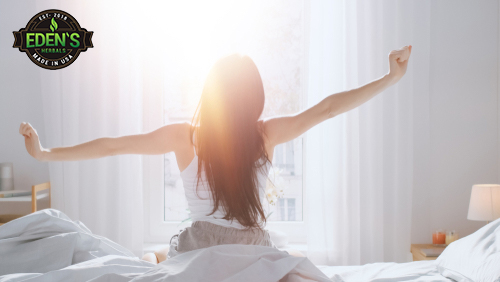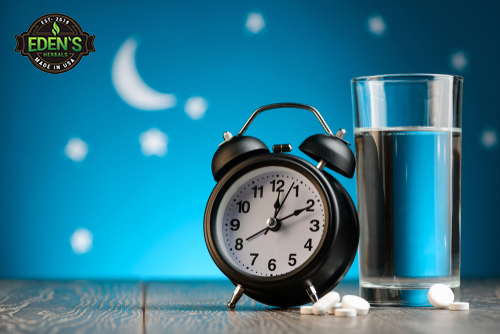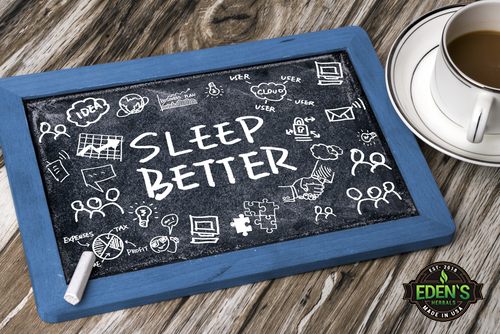 Never underestimate the power of a good night's rest. This is a tried and true piece of advice. Still over 30 million Americans say that they are sleep deprived.
Never underestimate the power of a good night's rest. This is a tried and true piece of advice. Still over 30 million Americans say that they are sleep deprived.
The effects of poor sleep on your health
If you have ever spent a night tossing and turning or comforting a sick child, you know what the physical and mental consequences are the next day. Have you considered, though, the long-reaching effects of poor sleep on your health? They include:
 1. Being more prone to accidents. Fatigue can slow your reaction time and even have an effect on your coordination. People who are sleep-deprived can find themselves falling or tripping more than usual. When it comes to tasks like driving or operating machinery, the results of sleep deprivation can be disastrous.
1. Being more prone to accidents. Fatigue can slow your reaction time and even have an effect on your coordination. People who are sleep-deprived can find themselves falling or tripping more than usual. When it comes to tasks like driving or operating machinery, the results of sleep deprivation can be disastrous.
2. Mental fog. Poor sleep can slow your thought processes, as well as make you quick-tempered and moody. You definitely don't feel at the top of your game when you are suffering from brain fog.
3. A weakened immune system. Your immune systemneeds enough rest and time to repair if it is going to function at its best. It is your body's defense against disease, illness, and infection. Poor sleep compromises your immune system. You'll find yourself more prone to colds, viruses, and disease if you don't get the sleep your body needs.
 4. Risk for developing more chronic health conditions. Poor sleep has been linked to several more serious diseases such as heart disease, respiratory issues, and diabetes. You owe it to yourself to prioritize good rest if you want to safeguard your long-term health and wellness.
4. Risk for developing more chronic health conditions. Poor sleep has been linked to several more serious diseases such as heart disease, respiratory issues, and diabetes. You owe it to yourself to prioritize good rest if you want to safeguard your long-term health and wellness.
5. Poor sex drive. People who don't get adequate sleep suffer from low libido.This can complicate relationships and cause unwanted stress. This decrease in sex drive is caused by imbalances in hormone levels that are normally regulated by wake and sleep cycles.
What to do?
 With our very health and wellness in the balance, it's important to look for ways to improve our sleep. By creating healthy sleep patterns, you can reclaim some of that energy that you may be lacking. There are many ways to do this, from sun exposure to CBD supplements. Here is how you can start to take back your health, one glorious nap at a time:
With our very health and wellness in the balance, it's important to look for ways to improve our sleep. By creating healthy sleep patterns, you can reclaim some of that energy that you may be lacking. There are many ways to do this, from sun exposure to CBD supplements. Here is how you can start to take back your health, one glorious nap at a time:
Strategy 1: Increase your bright light exposure
It's summertime! Get out and take a walk in the sun, or spend some time lounging by the pool in the hot rays. The more you can expose yourself to bright sunlight, the more efficiently your body is able to regulate your circadian rhythm. This is the cycle of wake/sleep hormones that help you to rise and retire when needed. Just two hours of bright day light has increased sleep efficiency by up to 80 percent in people who claim to have chronic insomnia. Time to soak up the sun!
Strategy 2: Reduce blue light exposure in the evening
Technology might improve our lives during the day. But it does not benefit our bodies when we are trying to get in sync with our natural circadian rhythm. If you must work on your devices after dinner, consider wearing blue-light blocking glasses. You might also try turning of all devices at least an hour before bedtime to get your body to reset. This will give your body needed hormones like melatonin and serotonin, which are inhibited by blue light exposure.
Strategy 3: Consider adding CBD products to your nighttime regime
CBD is a derivative of the hemp plant. Many people use THC-free CBD products like CBD oil, CBD gummies, CBD topicals, and CBD tinctures as part of a plan to release anxiety, reduce pain, and promote restful sleep. Use of these products involves the following methods of administration:
CBD oil is used in lotions, creams, or herbal extracts, and applied directly to the skin for whole body relief and improved well-being.
CBD tinctures are taken under the tongue, where they are quickly absorbed into the bloodstream.
 CBD topicals are used on the skin for localized pain relief and muscle relaxation.
CBD topicals are used on the skin for localized pain relief and muscle relaxation.
CBD gummies are taken internally as part of a daily supplement regimen.
THC-free CBD products won't lead to the mind-altering high that you get with marijuana. CBD has several health benefits, particularly more restful sleep.
Strategy 4: Limit your caffeine intake later in the day
Caffeine, a known stimulant, is consumed by millions of people around the world for one reason---to stay awake and alert. It would make sense, then, to avoid beverages containing caffeine as the day grows later. Caffeine will not be conducive to a good night's rest. Caffeine stimulates the brain, increases heart rates, and makes it difficult for the body to relax. Keep the strong stuff in your cup before noon and cut back after that for better rest.
5. Reduce or eliminate daytime napping
There are times when a nap would feel great, particularly if you feel sleep deprived. Unfortunately, naps are counter-productive to the establishment of healthy sleep patterns. If you're tired around late afternoon, try doing something to boost your oxygen intake. This could include taking a brisk walk or doing some other exercise to get the heart pumping. This will refuel your body and fight the fatigue that pulls you toward daytime napping.
6. Establish a sleep schedule
You can train the body tofollow certain patterns, and sleep is no exception. If you go to bed and wake up at the same time each day, your body will come to recognize this time as rest time. It will respond by adjusting your circadian rhythms to help regulate this process. Who knows? In a few weeks, you may not even need an alarm clock.
7. Take a melatonin supplement
In some people, not enoughmelatonin is produced to facilitate restful sleep. In this case, you may need the addition of a melatonin supplement. A melatonin supplement can help your body stimulate its own natural hormone production. Most supplements on the market today are FDA-approved and safe for use. If you have questions about adding this supplement to your diet, talk to your doctor.
8. Consider other supplements for good health that can improve sleep
There are a number of other non-drowsy supplements that can help regulate hormones needed for sleep. Some of these supplements include:
Ginko biloba--aids in relaxation.
Valerian root--promotes healthy sleep, but it should be taken before bed.
Glycine--an amino acid that can help regulate and promote healthy sleep.
Magnesium-responsible for over 600 processes in the body. Magnesium is a critical component and building block of good health.
L-theanine--another amino acid that can promote healthy sleep.
Lavender--produces a calming, sedentary effect that reduces anxiety and promotes more restful sleep.
Any one of these supplements, or combinations of them, will help your sleep/wake cycles.
9. Make your bedroom your haven
The setup, decor, and even temperature of a bedroom can make a significant impact on how well you sleep. Feng Shui practitioners have long preached the importance of decor and furniture placement within a room. The setup of a bedroom is no exception. Surround yourself with beauty, order, and pleasing sensations. You'll be off to dreamland in no time.
10. Lay off the mixed drinks
You may think that alcohol has a calming, sedative effect on the nervous system. In actuality, it inhibits the production of melatonin. This negatively affects your sleep patterns and quality. Use alcohol in moderation, and don't drink to excess before bed. This is the best strategy for improved, more restorative sleep.
Getting enough sleep doesn't have to be a challenge! Following these simple tips will have you well-rested, refreshed, and more energized in no time. Sweet dreams!


